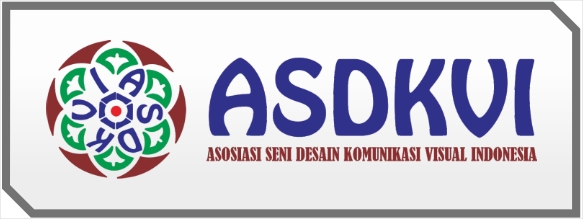Pemberdayaan Masyarakat Melalui Pelaksanaan Program Keluarga Harapan (PKH) di Desa Balangtanaya Kabupaten Takalar
DOI:
https://doi.org/10.59581/harmoni-widyakarya.v1i3.1027Keywords:
Empowerment, Family Hope ProgramAbstract
The Hopeful Family Program (PKH) is a poverty alleviation program. This study aims to find out what forms of Family Hope Program (PKH) assistance are available, as well as the positive and negative impacts felt from the Family Hope Program (PKH) in Balangtanaya Village, Takalar Regency. As for the qualitative descriptive research method and the type of field research. The research subjects were carried out using purposive sampling techniques and the informants in this study were 5 categories, such as pregnant women, the elderly, elementary, junior high, high school. The data collected consists of primary data and secondary data. The data collection techniques and procedures used were through in-depth interviews with a number of PKH beneficiaries, observation, documentation and data recording related to the problems of this study. The results of the study describe: 1) The forms of assistance received by PKH beneficiary communities and beneficiary families include; a. Health assistance for pregnant women and children aged 0 to 6 years, b. Educational assistance for children enrolled in SD, SMP, SMA/SMK equivalent, c. Social welfare assistance for the elderly over 60 years. 2) The positive impacts felt by beneficiaries of the Family Hope Program (PKH) assistance include; a. Pregnant women, namely getting services every month such as checking the content, giving vitamins and nutrition, b. Children aged 0 to 6 years, namely the nutritional and body health of toddlers are monitored, c. Children enrolled in elementary, junior high and high school, namely fulfilling school needs, and helping to reduce the generation of children who drop out of school, d.. Elderly (Elderly), namely social protection programs, namely health services in ensuring their welfare. 3) The negative impact arising from the Family Hope Program (PKH) is that it makes some people become dependent and do not have a business to help working families to earn other income.
References
Agusta, I. (2002). Metode Evaluasi Program Pemberdayaan. Konggres Dan Seminar Nasional IV Ikatan Sosiologi Indonesia, 1.
Awaru, A. O. T. (2021). Sosiologi Keluarga. In Media Sains Indonesia (Vol. 1, Issue 69). https://media.neliti.com/media/publications/114514-ID-keluarga-dalam-kajian-sosiologi.pdf
Bogdan & taylor. (2013). Penanaman Nilai-nilai Pendidikan Akidah melalui Mata Pelajaran Sejarah Kebudayaan Islam(ski) di Mts An-Nur Desa Hangtuah Kecamatan Perhentian Raja Kabupaten Kampar. Penelitian Kualitatif, 66, 1–66.
Dian, T. R., & Ma’ruf, M. F. (2019). Pemberdayaan Masyarakat Melalui Program Padat Karya Tunai (Studi Kasus Desa Plandaan Kecamatan Kedungwaru Kabupaten Tulungagung). Publika, 7(4).
Habe, H., & Ahiruddin, A. (2017). Sistem Pendidikan Nasional. Ekombis Sains: Jurnal Ekonomi, Keuangan Dan Bisnis, 2(1), 39–45. https://doi.org/10.24967/ekombis.v2i1.48
Handono, S. Y., Hidayat, K., & Purnomo, M. (2020). Pemberdayaan Masyarakat Pertanian.
NAZARUDIN, P. (2021). Pedoman Pelaksanaan Program Keluarga Harapan 2021. In DIREKTUR JAMINAN SOSIAL KELUARGA DIREKTORAT JENDRAL PERLINDUNGAN DAN JAMINAN SOSIAL KEMENTRIAN SOSIAL ri (Vol. 5, Issue 2, p. 7).
Putra, G. W., & Pujiyanto, P. (2020). Evaluasi Dampak Program Keluarga Harapan Terhadap Pemanfaatan Fasilitas Pelayanan Kesehatan untuk Layanan Persalinan di Indonesia (Analisis Data SUSENAS tahun 2018). Jurnal Ekonomi Kesehatan Indonesia, 5(1). https://doi.org/10.7454/eki.v5i1.3898
Putri, A. T. K. (2016). {Pemberdayaan} {Masyarakat} {Miskin} {Melalui} {Program} {Keluarga} {Harapanstudi} {Pada} {Kegaiatan} {Family} {Devlopment} {Sessions} {Di} {Desa} {Manduro} {Manggunggajah}, {Kecamatan} {Ngoro}, {Kabupaten} {Mojokerto}. Publika, 4(1).
Rudiadi, R., Ilosa, A., & Alsukri, S. (2021). Optimalisasi Kinerja Pemerintahan Desa Dalam Penyusunan Rencana Kerja Pembangunan Desa. Jurnal EL-RIYASAH, 12(1). https://doi.org/10.24014/jel.v12i1.13201
Senduk, N. V., Kiyai, B., & Plangiten, N. N. (2021). Dampak Pelaksanaan Program Keluarga Harapan (Pkh) Dalam Peningkatan Kesejahteraan Masyarakat Di Kelurahan Bumi Beringin Kecamatan Wenang Kota Manado. JAP No. 101, VII(102), 40–47.
Srihadiastuti, R., & Hidayatullah, D. S. (2018). Analisis Penyebab Kegagalan Mendirikan Usaha Baru Pada Para Lulusan Program Wirausaha Baru Jawa Barat Kelas Ide Bisnis. Jurnal Ekonomi Pendidikan Dan Kewirausahaan, 6(1), 31. https://doi.org/10.26740/jepk.v6n1.p31-44
Utomo, D., Hakim, A., & Ribawanto, H. (2014). Pelaksanaan Program Keluarga Harapan Dalam Meningkatkan Kualitas Hidup Rumah Tangga Miskin (Studi pada Unit Pelaksana Program Keluarga Harapan Kecamatan Purwoasri, Kabupaten Kediri). Jurnal Administrasi Publik (JAP), 2(1).
Zulkifli, Suadi, & Alwi. (2021). Penyalahgunaan Bantuan PKH: Motif dan Dampak (Studi Kasus di Gampong Bluka Teubai Kecamatan Dewantara Kabupaten Aceh Utara). Jurnal Sosiologi Agama Indonesia (JSAI), 2(2), 101–110. https://doi.org/10.22373/jsai.v2i2.1492
Downloads
Published
How to Cite
Issue
Section
License
Copyright (c) 2023 Nur Hidayah, A. Octamaya Tenri Awaru, Nur Ayu, Nurul Auliah. NM, Nanda Mayla Faizha Nur

This work is licensed under a Creative Commons Attribution-ShareAlike 4.0 International License.














